Stella Gaitano



The Writers-in-Exile Programme of the German PEN Center provides grants for writers who face persecution in their home countries. The German government finances this special program. The unique aspect of the program lies in the fact that PEN members share the bond of their common profession. This bond is strong no matter what country the scholar had to leave behind. To the writers who are persecuted, mistreated, jailed or even tortured in their home countries PEN offers refuge in Germany. On their way into a new life away from their homes, PEN reaches out to them in companionship.
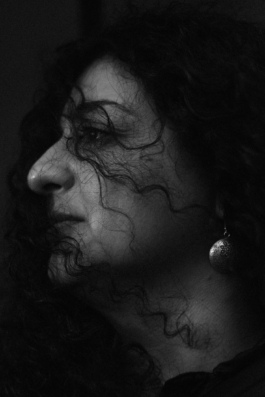


Escape migrants
Exhausted they crossed the unknown
Still before them the trees arrived
the mewing of the cats
the birds
and the lights
through which they saw their faces in the mirror
Light as a feather the dreams traveled
even the nightmares
What they had recorded in notebooks and books and on doors
on wood
on the internet
and with the camera
the cloud that watched for a long time and then cried
the heat that passed here yesterday
and the sluggish sky -
all that had arrived
Only my father's cane
still lay on my shoulder
But still we saw no sense
It was we who created the borders
and it was we who believed
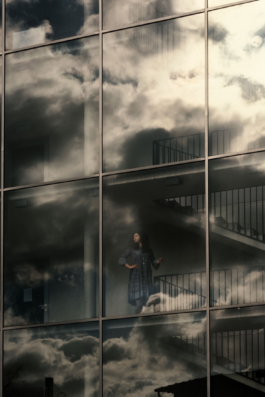
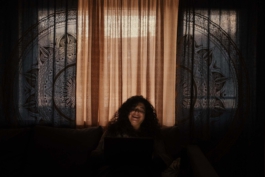
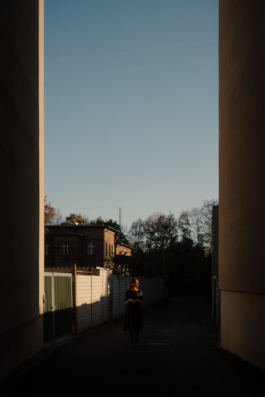
Evgenija Spaschenko is a Ukrainian writer, blogger, creative writing coach, and co-author of the award-winning podcast Ковен Дур. Through her Fairy Tales and Parables for Adults and her Culture Podcast, she brings Russian-language contemporary prose out of a niche and makes it accessible to a wide audience, because "we all love magical stories, their wisdom and light that makes its way even in the darkness of the deepest night."

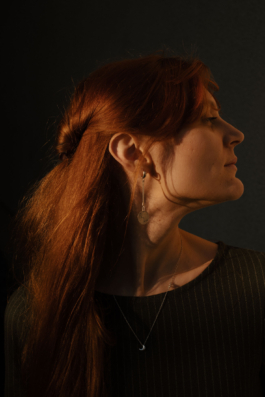

After Russia's attack on Ukraine, Evgenija came to Germany in July 2022 as a fellow in the Writers-in-Exile program. Here she is working on an autofiction novella that deals with war, life on the run, and art.
Her new podcast, "(Not) About War," tells the stories of creatives and artists whose lives and work have been affected, changed, or even destroyed by the war on Ukraine.
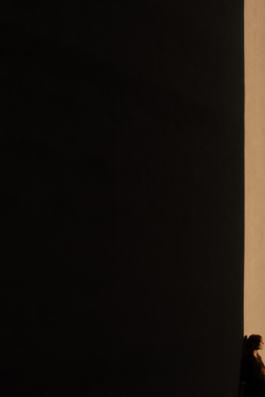
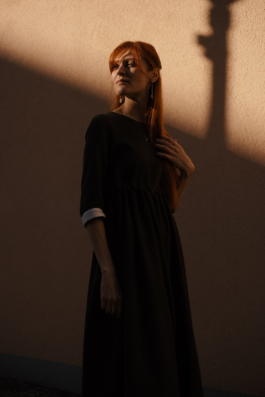

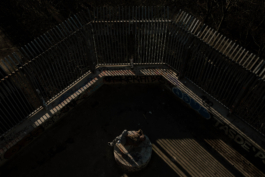
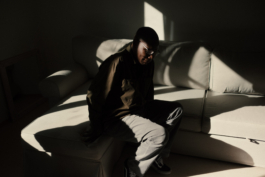
Collen Kajokoto is a well-known protest poet from Zimbabwe. In his work, he depicts the daily social struggles, fears and hopes in his homeland.
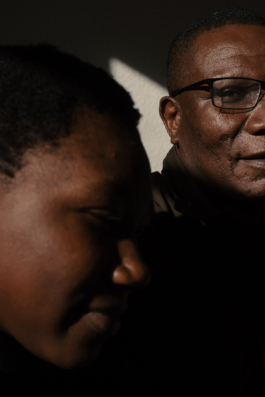
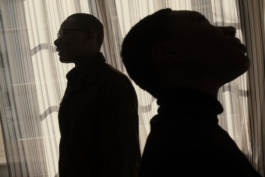
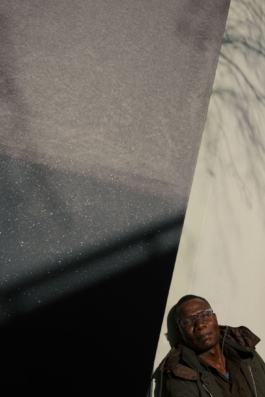
Born in 1973, Kajokoto began writing around 1998. Due to the political environment in Zimbabwe, he had great difficulty publishing his works. Despite all resistance within the publishing industry, he managed to publish some poems in magazines as well as perform in poetry salons and clubs. One of these poems is Slain Farmer, which Kajokoto wrote in 2000 after the murder of white farmer Martin Olds by war veterans.
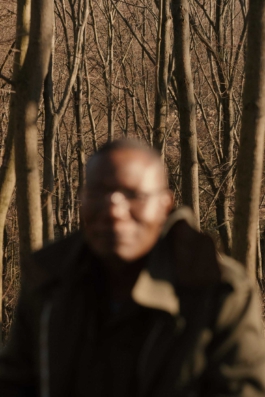
In March 2002, Kajokoto was arrested and tortured for protesting censorship of artists and political dictatorship. In late 2002, he fled to Botswana and later applied for asylum in South Africa. When his asylum application was rejected, authorities deported him to Zimbabwe, where he was charged with allegedly inciting public violence and denigrating the office of the president and sentenced to seven years in prison with no prospect of parole or remission. He was released from prison in 2019.
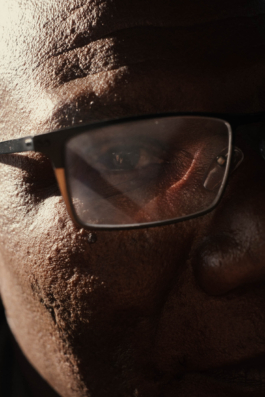

ገጣሚት ኣይኮንኩን
ግጥሚ እፈቱ’ምበር ገጣሚት ኣይኮንኩን
ገጣሚት አድንቕ
ግን ገጣሚት’የ ኣይበልኩን።
ኣነ ድኣ ትብዓተይ ቀቲለ
ሕልናይ ኣቑሲለ
ዓይነይ ዓሚተ እዝነይ ኣሚነ
ልብኻ ዓሚጽካ ምንባር ክኢለ፡
ንሓቂ ከይስየፍ ደኒነ ‘ናኸድኩ
መቓብር ስምዒተይ ኮይነ ናሃለኹ
ተጋጊኺ`ለኺ ተጋጊኻ ኣለኻ
ኣነ ኣይኮንኩን እታ ትብላ ዘለኻ!
ከመይ ድዩ ገጣሚ!፧
ከመይ ድያ ገጣሚት!፧
ንህይወት ሽፋና ዘይኮነ ዕምቆታ
ልሳና ዘይኮነ ስምዒታ
ኣንቢቡ፣ መርሚሩ፣ መዝጊቡ
ሓቅን ፍቕርን፣ ሕልናን ፍትሕን ኣዋሲቡ፡
ምእንቲ ጽባቐ ዝነብር ኣብ ገድሊ
ንልቡ ዘዳምጽ እኮ’ዩ ገጣሚ።
ጠበቓ ውጹዓት፣ ልሳን ዝተዓብሱ
ትንፋሱ ከኽትት ዝሓጸየ ነብ
ብርዑ ዝጥዋፉ ስምዒቱ ሴፉ፡
እኮ’ዩ ገጣሚ ብርሃንን ቀንዴልን
ዘይነብሮ መዓርግ ኣነ ኣይቅበልን
ክኸውን’ምበር ክመስል ኣይደልን!
ይርጋኣለም ፍስሃ (2012)

I am not a poet!
I love poetry, but I am not a poet
Poets fascinate me
But I never said, ‘I am a poet’
Because I have sabotaged my courage,
Wounded my conscience,
closed my eyes, trusting my ears,
learned how to live, deceiving my heart.
Because I refuse to sacrifice for truth, I walk down cast.
I have become the grave of my emotions.
Sir, madam, you are wrong!
I am not who you say I am.
What is but a poet!?
What is but a poetess!?
Life’s surface is not its depth,
The tongue is not the emotion.
Having read, examined, and observed
Truth, love, conscience, and justice combined
The poet abides in struggle, Listens to his heart
For the sake of beauty
Advocates for the muzzled, oppressed,
His gasp as self-sabotaging payment.
The pen is his candle, emotion is his sword
The poet is the light and the candle
I cannot accept an honor that I cannot uphold
I do not simply want to be, not to act.
(2012) by YIrgalem Fisseha


To read into her six years detention in Mai-Serwa prison click here.

"Throughout my life and across the ages, i asked myself:
What crime have war-suffering peoples committed that they must always choose between an unfree life in the homeland or a free one without a homeland?"
Umar Abdul Nasser, born in 1985 in Mosul, is an Iraqi poet and filmmaker. His poems, which he often sets to music and performs as part of "performance poetry," are for example about the deep-seated desire for a life of dignity or other topics dealing with life. Not only for himself, but for all other people.
After studying English at the university in his hometown, he worked, among other things, as an
accountant, computer specialist and teacher. He is also the founder of "Bridges of Love", a
project, which uses artistic forms of expression, especially poetry and music, to promote
intercultural encounters and friendship. Besides publishing some of his work in local newspapers he also uses Youtube to spread his work into the world.




Abdul Nasser's work was considered incompatible with Islamic law by IS,
which is why he had to go into hiding after the occupation of Mosul starting in 2014.
For more than two years he lived in hiding. During this time, he made the short film "A Prisoner from Mosul" (2017), which reflects his experiences under the rule of IS.
After leaving Iraq in 2017 he started working with different national artist in Europe. Since July 2019, Umar has been a joint fellow
of the Writers in Exile program of PEN-Deutschland.


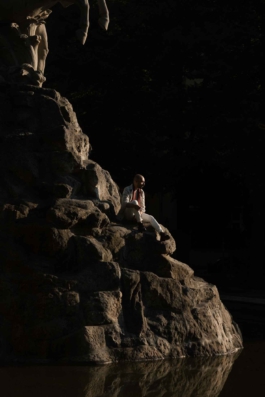
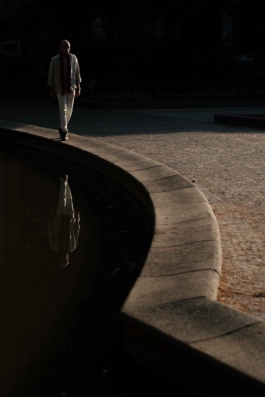



Vogel und Baum
Halb Vogel bin ich,
halb Baum.
Eine Hälfte will Wurzeln schlagen,
die andere fliegen.
Wie vereinbare ich
beide Teile,
gegensätzliche Träume?
Was ist wohl besser?
Bodenhaftung und treue Gefährten ein Leben lang?
Oder der Himmel, der mehr Raum bietet als jeder Freund?
Was ist schöner?
Gleiten durch grenzenlose Weite
ohne Pass
umweht vom Duft der Länder und Blumen
und immer getrennt von den Lieben?
Oder
der Platz am warmen Ofen,
umgeben von Kindern,
Geschichten erzählen und spielen,
die Liebste küssen,
ohne Abschied fürchten zu müssen
und abends die Türen zu verriegeln?
Hast du wirklich weder Reise noch Vertreibung zu befürchten
als Gast auf Erden
jederzeit bedroht vom Verschwinden?
Was ist schöner?
Gelegenheiten zu ergreifen
oder noch größere zu schaffen?
Was ist schöner?
Die ganze Welt als Zuhause
oder das Zuhause als ganze Welt?
Ein Gedanke, der Frage und Antwort fordert.
Halb Vogel, halb Baum,
die Zweige in der Schwebe zwischen
Flügeln und Wurzeln.
Ein Teil schlägt Wurzeln aus Angst,
der andere jagt Illusionen nach.
Halb Vogel, halb Baum,
Was wählst du?
Flügel oder Wurzel?
Jede Wahl zieht Folgen nach.
Jede Wahl
birgt andere Farben und Gefühle.
Halb Vogel, halb Baum,
die Entscheidung bestimmt das weitere Leben,
die falsche Wahl wird teuer bezahlt.
Halb Vogel, halb Baum,
aber auch Mensch.
Irrtum ist Lektion und Brücke.
Stella Nyanzi, born in Junja in 1974, is an Ugandan poet, activist and scholar. She is known for her fierce criticism of Ugandan President Yoweri Kaguta Museveni.
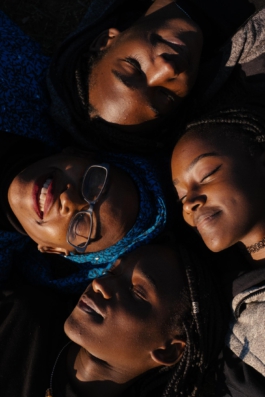
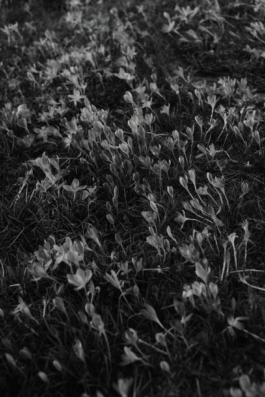
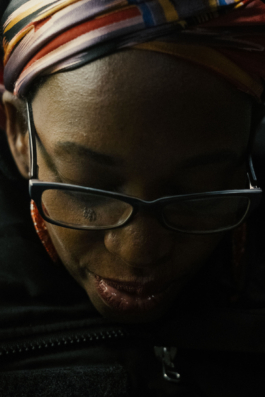
In April 2017, Dr. Nyanzi was first arrested for a poem posted on Facebook.
In it, she criticized Ugandan President Yoweri Museveni, who had refused to hand out sanitary napkins in schools to call for enlightenment and counter taboo. Because of
this promise, Museveni received numerous votes from women in the elections. After his re-election, however, he announced that the project could not be implemented due to a lack of funds. Stella Nyanzi then organized the distribution of sanitary napkins in schools through her project Pads4Girls and compared the president to a "air of buttocks" on social media. As a result, she was arrested by police on charges of cyber harassment and offensive communication. After international protests, she was released on bail in May 2017, but was detained again in October 2018. She boycotted a new release on bail
saving: "I don't want to be free if I can't write and criticize Museveni. In February 2020, the Court of Appeals overturned her sentence.
Stella Nyanzi was freed, but has since faced serious death threats, especially after she strongly criticized the restrictive restrictions on freedom of expression during the pandemic. Due to the increasingly dangerous situation, she had to seek refuge in Nairobi for several weeks in early 2021.
From 1993 to 1996, Stella Nyanzi studied at Markere University in Kampala and graduated with a Bachelor of Arts in
Journalism, Communication Studies and Literature. In 1999-2000, she studied at University College London and obtained a
Master of Science in Medical Anthropology. She went on to earn a Master of Arts in Development Studies and Finance from
Nkumba Universitv.
Stella Nyanzi primarily speaks out on social media, writing poetry with biting humor in the style of the "radical rudeness" to denounce grievances in Uganda.
For her uncompromising commitment to freedom of expression, she was awarded the PEN International Award for Freedom of Expression in 2020.
As of February 2022, Stella Nyanzi is a fellow of the Writers-in-Exile program.
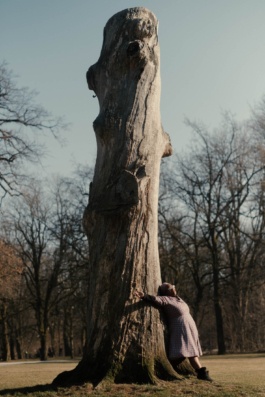
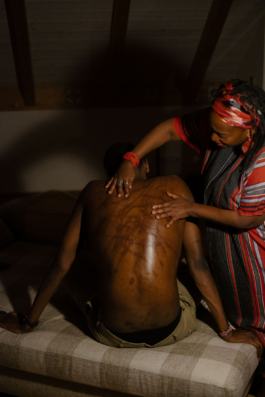
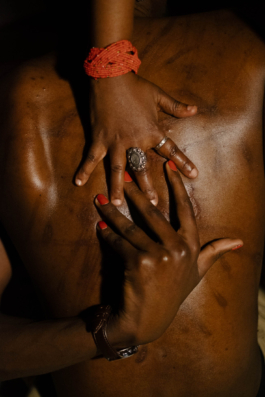
Barbaros Altuğ was born in Turkey. The writer and journalist worked for several newspapers and monthly magazines, including two years as a columnist for the now closed Taraf Daily newspaper of the imprisoned journalist Ahmet Altan. In 1999, Altuğ founded Turkey's first Literary Agency.


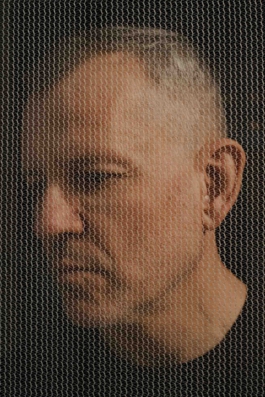
"It is not when he experiences that man is happy, but when he remembers."
His first novel, "Es geht uns hier gut," was published in Turkish, followed by translations into German and English.
He also published an anthology in Turkish, which has been translated into Greek and Bulgarian.
As a columnist and author on LGBT and minority rights in Turkey, Altuğ has received death threats. After the failed coup in 2016 and increasing repression, he left Turkey, lived in Paris for a year, and finished his second novel, "Stabs into My Soul," which deals with the Armenian genocide and is set in Paris, Istanbul and Yerevan. Due to its sensitive content, the volume will not be published in Turkish.
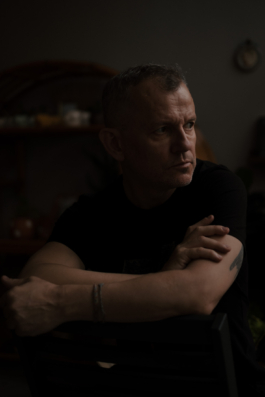

He is currently working on a new novel that tells the story of a family over four generations between 1960 and 2010. For his work on the new novel, he received a grant from Writers Unlimited in The Hague for 2020 to work on the new novel.
In 2006 and 2017, he gave seminars at the Gümüşlük Academy in Istanbul and Bodrum. His articles on travel, cities, people and places have been published in Hurriyet, Radikal and other daily and monthly magazines.
Since December 2020, Barbaros Altuğ has been a fellow of the Writers-in-Exile program.
Turkish author and activist Nazli Karabıyıkoğlu was born in Ankara in 1986. Karabıyıkoğlu studied Turkish language and literature at the Boğaziçi University, and has since published five books. Facing political and gender oppression in Turkey, the writer decided to push the Turkish #Metoo movement and advocate for political minorities within the Turkish publishing industry. Her writing has won several awards.
In her home country, she exposed sexual harassment, rape culture and bullying within the Turkish literary scene. As a result of this research and articles about the ongoing sexual assault she and her colleagues were subjected to, and the texts she published about this issue, she was expelled from the publishing community. Karabıyıkoğlu lived as a queer woman under the constant fear of being arrested or killed. When the pressure became too much, after she saw her name on the “terrorist list” published by an advocate newspaper of the Erdogan government, she fled to Georgia in 2017, where she lived until her fellowship in Germany in 2021. The ongoing repression and restricted freedom of expression forced the author into exile. She made her way from Istanbul to the small Georgian town of Kutaisi. But even in Christian Orthodox Georgia she was exposed to hostility and oppression.
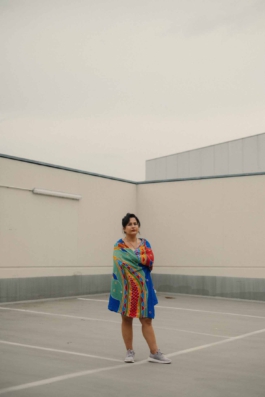
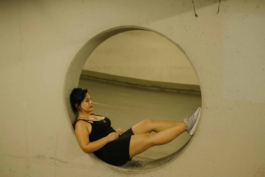
Since February 2021, Nazli Karabıyıkoğlu has been a fellow of the Writers-in-Exile program of the German PEN.
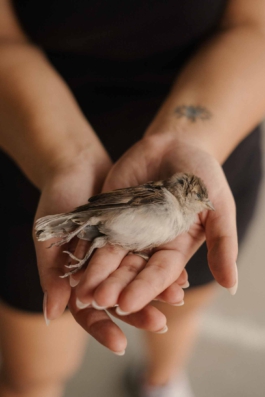
As a feminist activist, she fights for freedom of speech and creation. Through her work, she draws attention to abuses within Turkish prisons and domestic conflicts. She wants to write freely about one of the biggest taboos in her country, homosexuality, a moral prohibition of Turkey that leads to many murders in the LGTBQ community.

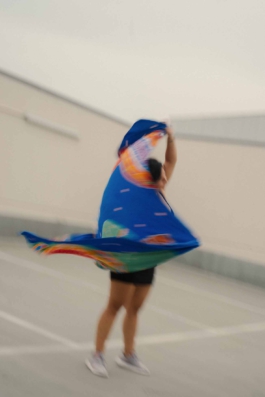
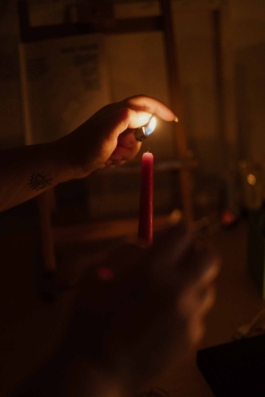
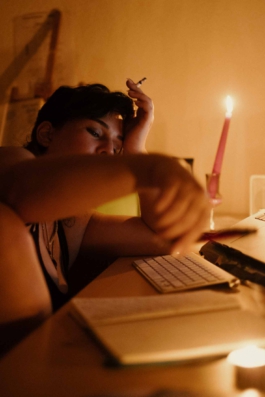
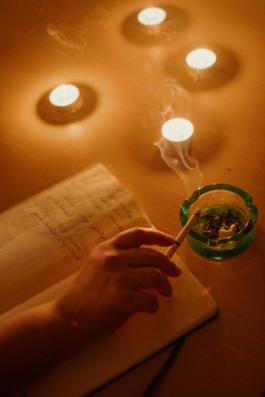
After winning some important literary awards in her country, she started working for magazines in 2009. Among others, she received the UnCollected Press/Raw Art Review Full Length Book of Short Stories award for her writing. She was invited to speak at Ubud Readers and Writers Festival in 23-27 October 2019 in Bali. She was also awarded with Writer at Residence program in Prague by UNESCO City of Literature Creative 2020 for two-months residency at Kafka House. She also drew attention of USA literary scene with her last novel Elfiye in term of queer writing and selected for representation by Janklow&Nesbit Agency.
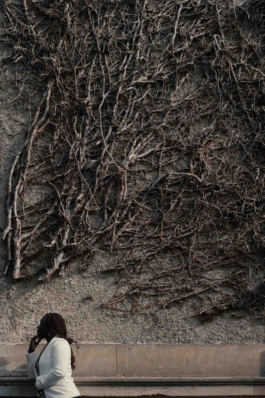
Stella Gaitano
"Ich sah, wie ich mich selbst erbarmungslos tötete. Ich erblicke mein anderes Ich, das sich in einer Uniform verschanzte, schwer bewaffnet war und quer über die Brust einen schweren Gürtel aus MG-Patronen trug [...] "Erkennst du mich nicht? Ich bin es. Ich bin du!"

Stella Gaitano is a well-known South Sudanese writer and activist. Her work focuses on the effects of war, the systematic socio-political injustice against the marginalised Sudanese population and exposes the political and ideological reasons for instigating wars and atrocities.
Over the past two decades, she has published short stories, novels and journalistic articles, and was also awarded the PEN Translates Award. Her novel "Eddo's Souls" was the first South Sudanese literary work to receive a literary award. Her works have been published and reviewed in renowned international media, including the New York Times, Banipal, BBC Arabic and Al Jazeera.


After the split of Sudan from South Sudan, Stella became stateless and subsequently lost her job. Because of her political stance and activism, she was targeted by nationalist and tribalist circles who attacked her on social media. They incited the public to kill her. Stella became the target of obscenities and open hate speech.
After Stella tried to launch initiatives in Dafur as a cultural and human rights activist, threats against her and her children were repeated and there were renewed physical attacks in 2021.

Sajjad Jahan Fard
The Kurdish writer, researcher and translator, was born in 1985 in the village of Niyan in the
Eastern Kurdish province of Kermanshah (Iran). Because of his commitment to the Kurdish
language and culture, he was expelled from high school in Kermanshah. Thereupon he deepened his
and wrote more than twelve books in various Kurdish dialects (Kelhuri, Kurmanci, Kurdish
(Kelhuri, Kurmanci, Sorani and Leki).
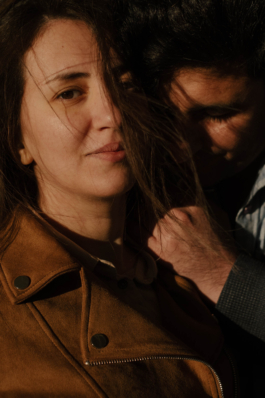
The Iranian writer, language teacher and cultural activist has been persecuted by Iranian security forces because of her writing and political work to preserve the Kurdish language and culture. The critical activist has already been arrested several times and faced physical as well as psychological violence.
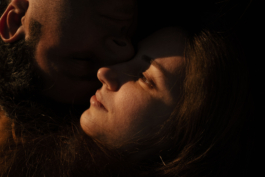



The door opened and the guardian stood on the doorstep with the tray and called out, "Asra, come take this tray."
"Why did you crush it?"
"Don't talk! Take it and give each one a piece."
Asra placed the tray full of carrots in the middle of the room.
The other women, all busy with something, turned, glanced, and secretly laughed.
"It's always your fault, problem aunt!"
"If you hadn't been so impatient then and waited an hour, now..."
The two guards and about ten of the women dragged in another woman. I awoke to their shouting.
I leaned out of my bed so I could see her better. The woman, who had her back to me, was holding the belt of her pants tightly in her hand while ten to twelve other women were trying to pull her pants down. That was what I saw that winter afternoon. It was to no avail, after a moment they pulled her pants down, only the belt of her pants remained in the woman's hand.
Each of the guards had grabbed one of the legs and were spreading them apart. Two of the women had also pulled up their sleeves. Raziyeh was the first to put her hands between her legs. I was paralyzed in my seat and I don't know why I couldn't grasp a thought. Raziyeh shook her head discontentedly and said nothing. At that moment Zeynab grabbed Raziyeh's shoulder, pulled her back, went forward and with the anger that was dormant in her, she pressed her forearm up to the elbow between her legs. The woman was breathing heavily and she could do nothing. The other women did the same after their turn.
The guard with the woman's right leg yelled at her, "Where is it, you shameless bitch?"
She did not give the woman a chance to answer. The guard holding the woman's left leg ordered the women:
"It's obvious that she doesn't want to say anything, go and look again."
Raziyeh and Zeynab continued forward, at this Raziyeh pushed her hand forward, Zeynab grabbed her hair and pulled it back:
"Raziyeh, you don't get it, don't mess up the order here!"
"What's the matter sister, isn't here the line in front of the bakery that I can't get past you. It has nothing to do with age, I have more experience than you, so I have to be first."
"Now shut up! If you were that experienced, you would have found it last time!"